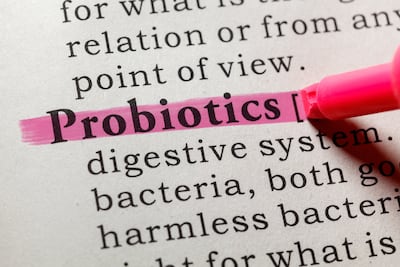Ingredients & Safety
Only Opella’s own Enterogermina brand was found by a company-funded study to be contamination-free, to contain the claimed content, and show resistance to all tested antibiotics.
The studies reviewed by BMJ researchers failed to account for the fact that the association between in utero exposure to paracetamol and autism and ADHD in childhood “might be driven by familial genetic and environmental factors.”
Brits are consuming insufficient amounts of vitamin D, riboflavin, folate, iron, calcium, potassium, iodine, selenium and omega 3, according to a recently published study. Consumer health companies can help by providing affordable supplements with easy to understand health claims.
Norway's Medical Products Agency has rejected claims that misuse of OTC ibuprofen is linked to its availability for purchase in outlets other than pharmacies.
EU legislation aimed at controlling at source emerging pollutants such commonly used OTC analgesics like ibuprofen and diclofenac and “forever chemicals” like perfluoroalkyl and polyfluoroalkyl substances (PFAS) edges closer to adoption.
“The European Commission’s work on harmonizing maximum levels of vitamins and minerals should fully reflect the positive role that food supplements can play in safely and effectively addressing micronutrient gaps,” insists Food Supplements Europe chair Peter Loosen.
EMA and MHRA among European regulators reiterating the safety of paracetamol use by pregnant women following news FDA will require OTCs to carry label warning.
EFSA is consulting on a provisional CBD safe dose of 2mg for a 70kg adult and has stated that the safety of CBD cannot be established for individuals under 25 years of age, pregnant or lactating women, and those on existing medications.
UK CBD food supplement applications from Chanelle McCoy, Cannaray Brands and the European Industrial Hemp Association pass FSA's safety assessment stage and are now out for consultation. After that, only government approval stands in their way, with five years exclusivity the icing on the cake.
Updating wastewater treatment facilities in Germany will cost almost three times more than the German Association of Local Public Utilities (VKU) has predicted, according to a Pharma Deutschland analysis.
A series of research papers recently published by the Global Self-Care Federation indicate that industry will need to be pragmatic about alternatives to PVC in medicine blister packs.
Dietary supplements containing estragole may have to be removed from the European Union market due to carcinogenic risk, according to a draft scientific opinion from EFSA that is currently out for consultation.
AESGP has formally submitted a request to the General Court of the European Union to intervene in the European Federation of Pharmaceutical Industries and Association’s legal action against the revised EU Urban Wastewater Directive.
FDA’s fourth approval in past two months for color derived from natural sources to use in foods is Gardenia Blue Interest Group’s color additive petition for gardenia blue. Lycored launches StellarYellow and C Clear as alternatives for synthetic dyes yellow Nos. 5 and 6 and OrangeOvation C Clear for
Health Subcommittee will discuss reauthorizing OMUFA during a hearing on how to “maintain and improve” the public health workforce and rural health as well as access to OTC medicines.
The Urban Wastewater Treatment Directive “in its current form, is at an end,” insists Pharma Deutschland CEO Jörg Wieczorek. To put the directive to bed once and for all, the association has applied for leave to intervene in the ongoing EU legal battle in its own right.
Based on advice from its advisory committees, the UK's Food Standards Agency is encouraging businesses to meet an acceptable daily intake of 10mg CBD per day and a safe upper limit of 0.07mg THC per day.
Limited capacity and a two-to-three year timescale for reformulation could mean that many VMS supplements disappear from the market, warns EPPA partner Alexandra Bocquillion, speaking at the AESGP Annual Meeting in Warsaw, Poland.
The EU Council has introduced a key amendment to Article 51 (para 1, point e) of the new pharma directive: “A medicinal product shall be subject to medical prescription where it is an antimicrobial, unless intended for topical use.”
Bayer's Iberogast Advance's combination of six herbal ingredients may produce a synergistic effect that acts on multiple underlying issues contributing to digestive disorders like functional dyspepsia (FD) and irritable bowel syndrome (IBS), a recently published study suggests.


















